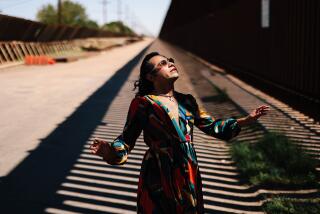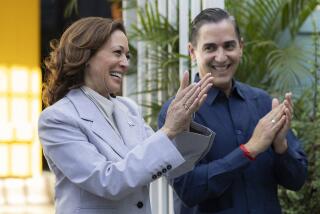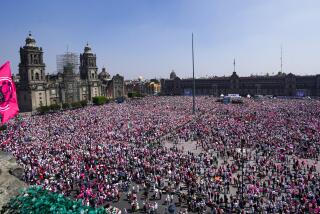Puerto Ricans press for Gov. Rossello’s resignation ahead of major protest Monday
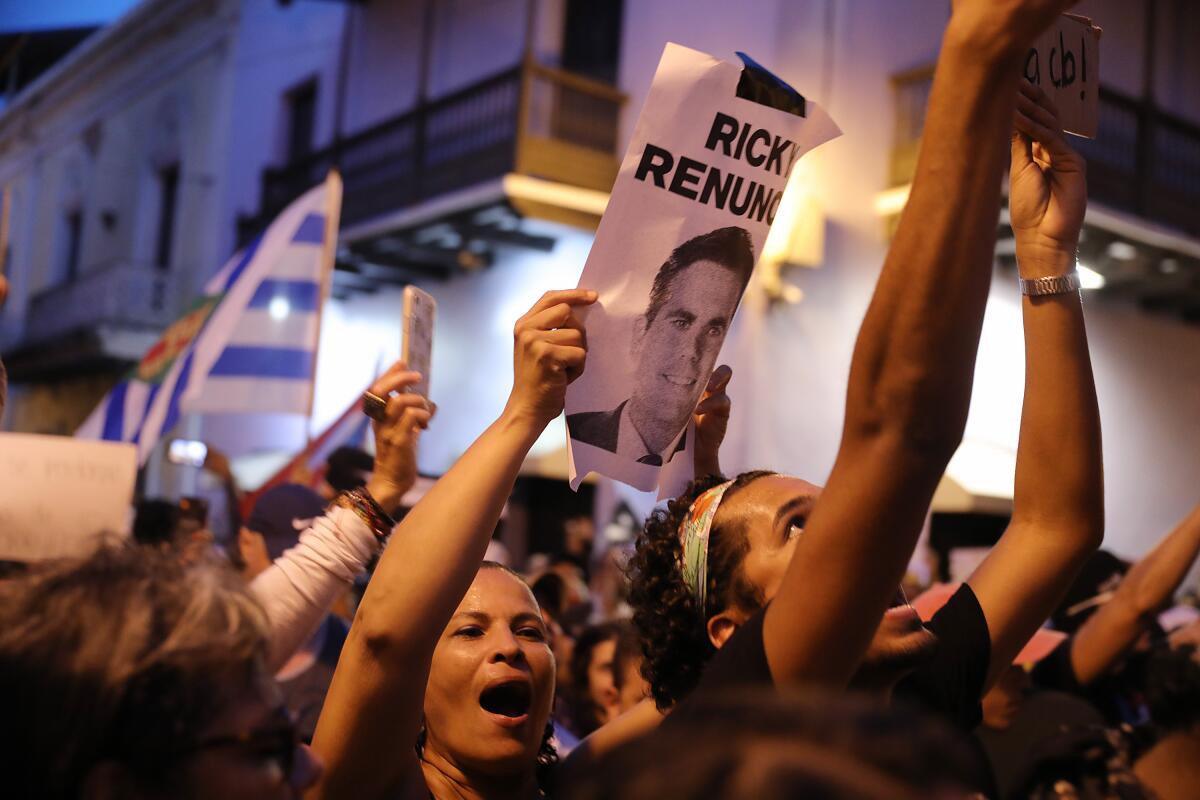
Alexa Padilla stood near the Puerto Rico governor’s official residence, a historic 16th century structure known as La Fortaleza, on Saturday checking her phone for any word on whether Ricardo Rossello would resign.
Nothing.
“It feels like torture,” said the 17-year-old, who traveled an hour from Arecibo with her father and friend to attend a rally in San Juan, the capital, to protest Rossello and corruption.
The governor must resign, she said.
Rossello has apologized, but refused to step down following widespread outrage over leaked messages between him and several of his top aides, in which the men used homophobic and sexist language and joked about the cadavers that accumulated after Hurricane Maria, which devastated the island in September 2017.
A major demonstration is expected Monday, perhaps even larger than those held during the past week that drew thousands of people to the city’s cobblestoned streets. Scores of politicians, including the U.S. commonwealth’s non-voting member of Congress, have called for Rossello to step down.
Many of the protesters — lawyers and street cleaners, grandmothers and government employees — said they’d attended the gatherings out of anger, but left feeling deep pride. The movement was about righteous indignation, they said, a forceful repudiation of corruption, misogyny, homophobia and economic inequalities.
Alberto Camacho, a filmmaker who lives in San Juan, said he has been amazed by the level of activism he’s seen in recent days from Puerto Ricans, who are U.S. citizens at birth, on the island, the mainland and abroad.
“What I have seen recently is the most impressive event in my life as an activist in Puerto Rico,” said Camacho, 36, noting demonstrations in various cities that often included the hashtag #RickyRenuncia, which uses a nickname for the governor and calls on him to resign.
“We’re standing up together,” said Damaris Olivo, 48, who took a quick break from her job tidying the city’s streets to watch the protesters dancing.
She thought about people like her sister, whose home in Bayamon was destroyed by Hurricane Maria and about the homes in Ponce that still rely on blue tarps for roofing. She thought, too, of her leaders and their leaked messages, insulting victims. She shook her head in disgust.
Nearby, in the shade of an awning hanging outside a Panama Hats shop, a 41-year-old woman stood with a sign partially covering her face. She didn’t want to be photographed or named, she said, because she works for a department of the commonwealth’s government and fears retribution.
Still, she said, she felt compelled to join the protest after learning officials had joked about hurricane victims. The storm tore her family apart, she said, because her brother, sister and in-laws all fled to the mainland.
She was upset, too, by recent news that two of the island’s former top officials were arrested July 10 and stand accused of directing lucrative contracts worth about $15.5 million to politically connected businesses. It’s so hard for common people to get by on the island, she said, noting that she makes about $2,000 a month and her husband has a good job. Still they often live paycheck to paycheck.
“I don’t know how other people do it,” she said, sighing. “The economy is terrible.”
The island’s economy — already plagued by problems including decades of poor fiscal management — took a hit in 2006 with the phasing out of IRS tax incentives for U.S. companies operating on the island. Manufacturing firms packed up, taking many jobs with them. The government took on debt by selling bonds to pay expenses, and several years ago acknowledged it had ballooned to more than $70 billion.
In 2016, Congress established a board to oversee Puerto Rico’s finances. The proposed austerity measures, including slashing pensions, upset people who resented the paternalistic set-up of a non-elected body.
The recent protests have included uncomplimentary references to la junta — the local name for the oversight board.
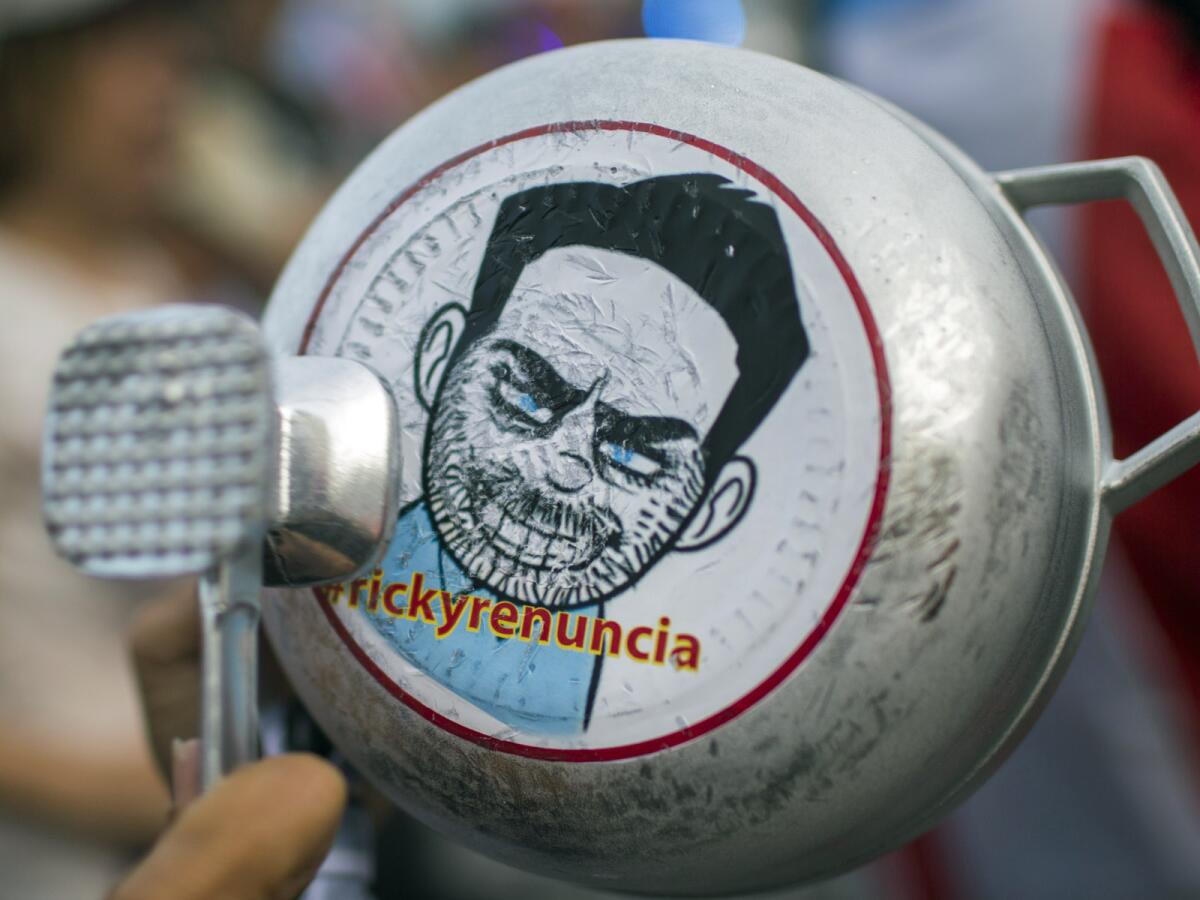
“People are questioning that colonial dimension,” said Jorell A. Melendez-Badillo, an assistant professor of Latin American and Caribbean history at Dartmouth College.
Hurricane Maria wiped out huge chunks of the island’s power grid for months and escalated tensions between the commonwealth and the mainland. In those first desperate days, as morgues filled with bodies and hospitals without power turned away patients, many Puerto Ricans grew frustrated with the response time of the federal aid.
Nearly two weeks after the storm, President Trump went to Puerto Rico and struck an upbeat, and many observers felt insulting, tone. Many Puerto Ricans on the island and the mainland said Rossello, who appeared with Trump, looked weak next to the president, especially considering that island residents were in severe need of housing, water, electricity and medicine.
An official hurricane-related death toll of 16 at the time was considered a ridiculous undercount by many residents. The estimated figure has since risen to well above 4,000.
But until last week, criticisms of Rossello and the government had not resulted in mass demonstrations.
Not long after Rossello cut short his European vacation because of the arrests in the corruption scandal, Puerto Rico’s Center for Investigative Journalism had published 889 pages of group chat messages.
“The chat was just the tip of the iceberg,” said Nicole Alvira, a lawyer, who attended Saturday’s protest with her two young children.
She said she was worried about how Washington might react, noting that the island has received only a fraction of the billions it’s been promised to rebuild after the hurricane.
Some of the dozens of protesters at the governor’s official residence Saturday clanged pots and pans. Some shops had wood slats covering their windows. Several people said they felt compelled to keep the pressure on Rossello.
Brenda Pomales, a 54-year-old engineer who attended with her teenage daughter, said joining the protest — her first ever — felt like a duty.
“The pages of our history are being written now,” she said, adding that she believes Rossello’s tenure will long stand as “the most unfortunate political event” in the modern history of Puerto Rico.
Nearby, Alexa Padilla stood by her friend and recounted the moment she heard about the leaked messages mocking victims of the hurricane.
“I felt a fury I didn’t know I could feel,” she said, twisting her lips in frustration.
In that moment, her mind raced back to the three months after the storm, when her family had lived without electricity. She thought about the volunteer trip her school took to the hard-hit municipality of Utuado and the faces of all the small children, who had been barefoot and hungry. She thought about how impossible it was to get ice back then and about how strangers sometimes shared the last bit of a precious, cold Coca-Cola with her. She smiled.
In many ways, she said, she feels the same way now as she did then. She feels so deeply proud to be Puerto Rican, so proud of people for standing up against homophobia, corruption and misogynistic comments. Anytime she looks at the pictures of the massive protests in recent days, she said, she has to take a deep breath.
Even thinking about it gives her goose bumps.
“I’m so proud of the pueblo,” she said. “I love to see the unity.”
Special correspondent Milton Carrero Galarza contributed to this report.
More to Read
Start your day right
Sign up for Essential California for news, features and recommendations from the L.A. Times and beyond in your inbox six days a week.
You may occasionally receive promotional content from the Los Angeles Times.
